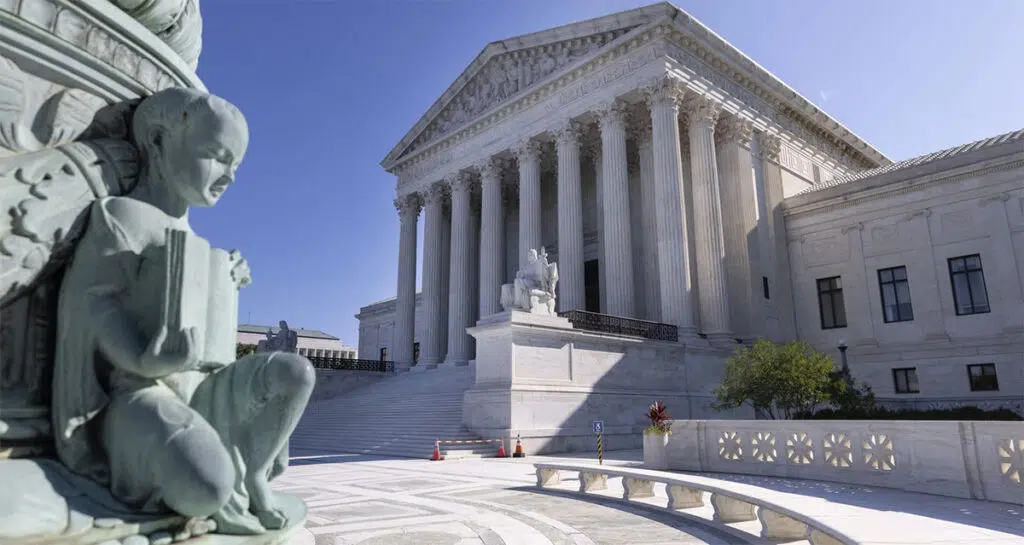
Constitutional Crossroads: Implications of SEC v. Jarkesy on Judicial Integrity
In my doctoral research, I have approached the imminent Supreme Court case, SEC v. Jarkesy, as a constitutional crossroads, critically evaluating the role of Administrative Law Judges (ALJs) within the Securities and Exchange Commission (SEC) through the lens of Article II of the U.S. Constitution. As the Supreme Court convenes to deliberate on this case, it ushers in a critical juncture with the potential to significantly reshape the fabric of administrative law and executive power in the U.S. This landmark case is poised to rigorously test and potentially redefine the balance of power within our federal system.
SEC v. Jarkesy challenges the SEC’s internal judicial processes, questioning the constitutional validity of the appointment and authority of its ALJs. This case follows the critical decision in Lucia v. SEC (2018), where the Supreme Court ruled that SEC ALJs are “Officers of the United States,” subject to the Appointments Clause of the Constitution. This clause, a bedrock of American governance, ensures a clear delineation of power and accountability within the federal government. Therefore, the upcoming decision in this case carries substantial weight, potentially significantly altering the landscape of federal administrative law.
The implications of the Court’s decision extend far beyond the confines of legal theory, striking at the heart of the nation’s democratic governance and judicial integrity. A ruling that deems the SEC’s current practices unconstitutional would necessitate a profound reevaluation of the adjudicative processes across various federal agencies, extending the impact of this case to a broad spectrum of administrative law.
SEC v. Jarkesy also highlights the critical issue of the separation of powers, a principle central to the Constitution and the functioning of a democratic government. By potentially exercising judicial powers, the SEC, an executive agency, blurs the lines between the executive and judicial branches. This conflation raises constitutional concerns and brings into question the impartiality and independence of the administrative judicial process. The Supreme Court’s decision could serve as a clarion call for the reassertion of this fundamental principle, reinforcing the distinct and separate roles of the government’s branches as envisioned by the framers of the Constitution.
The discussion around SEC v. Jarkesy also touches on the broader themes of government accountability and transparency. The current process, where ALJs within the SEC preside over enforcement actions, raises questions about the fairness and openness of these proceedings. To be deemed legitimate and just, a judicial system must not only be impartial but also be perceived as such. The Supreme Court’s ruling offers a unique opportunity to address these concerns, potentially ushering in a new era of administrative justice that upholds these values.
Furthermore, the case underscores the evolving nature of administrative agencies in the modern era. As these bodies grow in influence and scope, balancing their efficiency and effectiveness with constitutional mandates becomes increasingly complex and crucial. The decision in SEC v. Jarkesy could signal a redefinition of this balance, emphasizing the need for these agencies to operate within the confines of constitutional boundaries while effectively fulfilling their regulatory roles.
Regarding policy recommendations, a fundamental reform is establishing an independent federal administrative court system. This system would ensure impartial adjudication of administrative cases and embody the separation of powers doctrine. It would serve as a neutral forum, detached from the executive branch, providing a transparent and equitable process for adjudicating disputes involving federal agencies.
Additionally, revising the appointment process of ALJs to align with the Appointments Clause is a legal necessity and a step towards restoring public trust in the administrative judicial process. Ensuring these positions are filled constitutionally compliant is paramount for the legitimacy and fairness of the administrative proceedings.
Moreover, implementing stringent checks and balances within the SEC could enhance its accountability. This includes greater oversight by Congress and a more robust judicial review of SEC enforcement actions. Such measures would safeguard against potential overreach and ensure that the rights of individuals and entities subject to SEC enforcement are adequately protected.
The Supreme Court’s decision in SEC v. Jarkesy also carries significant implications for the future of regulatory enforcement in the United States. A decision that limits the SEC’s use of ALJs could lead to a shift towards more federal court involvement in securities enforcement, potentially increasing the transparency and fairness of these proceedings. However, this could also result in increased costs and longer timelines for enforcement actions, underscoring the need for a balanced approach that preserves efficiency and constitutional safeguards.
As the Supreme Court deliberates on SEC v. Jarkesy, its decision will have far-reaching consequences, potentially reshaping administrative law and reaffirming the enduring strength of the U.S. Constitution. This case is not merely a legal dispute; it is a moment of constitutional significance, challenging the nation to uphold the principles of democracy and justice.
In conclusion, the hearing of SEC v. Jarkesy transcends legal boundaries, becoming a pivotal moment in the ongoing dialogue between law and governance. The Supreme Court’s decision will be instrumental in shaping the contours of administrative justice, ensuring that the foundational principles of our constitutional democracy are not just preserved but strengthened for future generations.
Thomas Powell, a Doctor of Law and Policy candidate at Northeastern University, leverages his thirty-five-year tenure in finance to add to the dialogue on administrative justice. An expert in private equity and asset management, he contributes a relevant perspective on the tenets of our constitutional democracy for enduring impact.


